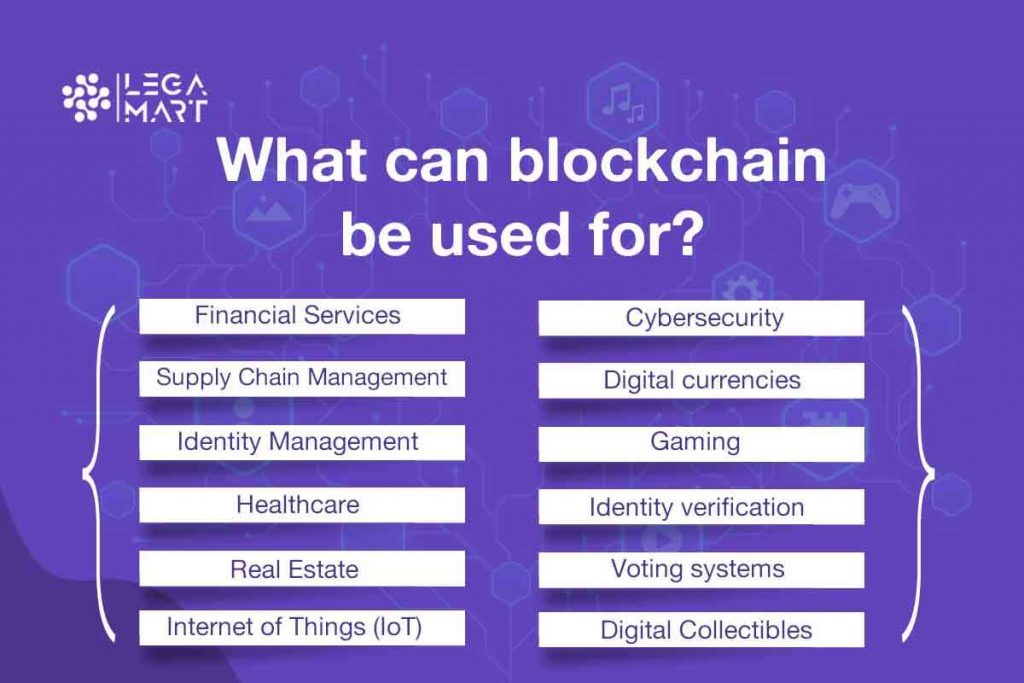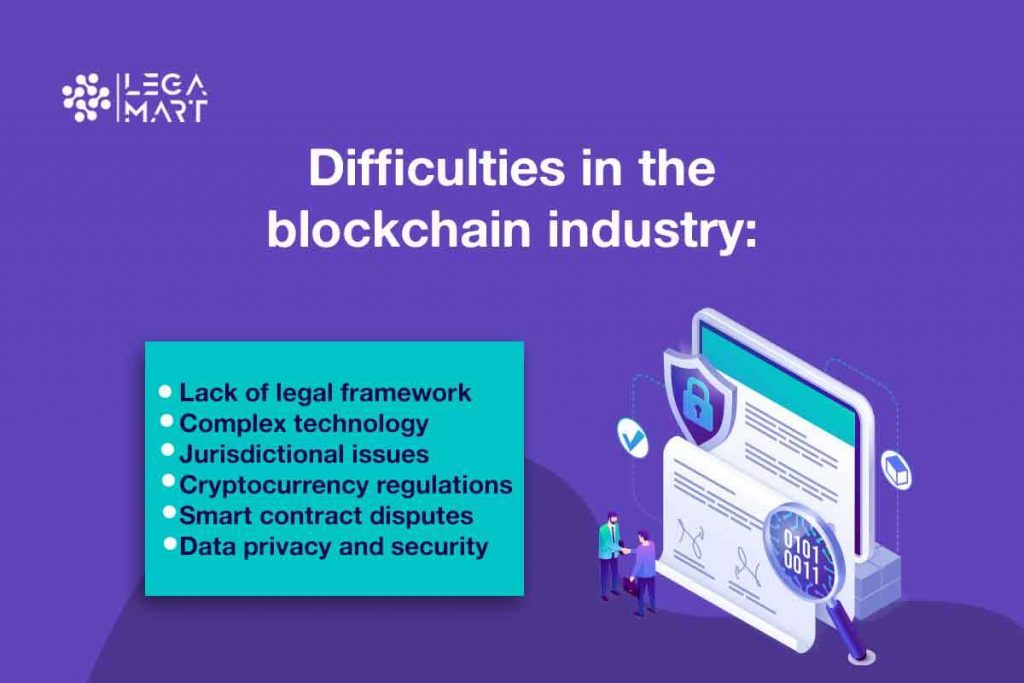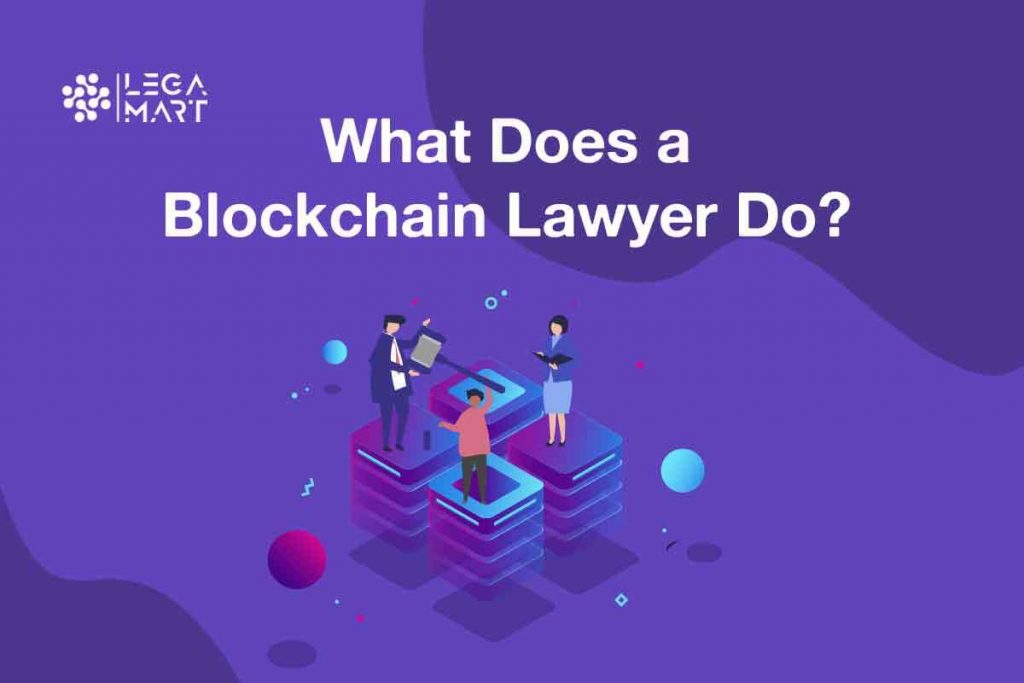- Introduction
- What can blockchain be used for?
- Blockchain lawyer
- Opportunities available in blockchain law
- Qualifications and Salary for a Blockchain Legal Consultant
- Why should lawyers consider joining the blockchain industry?
- Benefits of blockchain in the legal industry
- Difficulties in the blockchain industry
- Conclusion
- Frequently Asked Questions (FAQs)
Introduction
Blockchain technology and cryptocurrencies have rapidly gained popularity in recent years, leading to a growing demand for legal professionals with expertise in these areas. Blockchain lawyers, also known as crypto lawyers, advise clients on various legal issues related to blockchain technology and cryptocurrencies.
One of the primary responsibilities of a blockchain lawyer is to advise clients on regulatory compliance. With the rapid development of blockchain technology and cryptocurrencies, regulatory bodies worldwide have been working to catch up and establish guidelines for these new industries. A blockchain lawyer helps clients navigate the complex and ever-changing regulatory landscape and ensure compliance with laws and regulations. This can include advising on licensing requirements, anti-money laundering (AML) and know-your-customer (KYC) regulations, and taxes.
Another important aspect of a blockchain lawyer’s work is drafting and reviewing smart contracts. Smart contracts are self-executing contracts with the terms of the agreement between buyer and seller being directly written into lines of code. These contracts are stored and replicated on the blockchain network, making them secure and tamper-proof. They help clients to draft and review these smart contracts, ensuring they are legally binding and enforceable.
They advise clients on fundraising methods, particularly initial coin offerings (ICOs). An ICO is a fundraising campaign in which a company issues digital tokens to investors in exchange for cryptocurrency. Blockchain lawyer help clients structure their ICOs in a way that is compliant with securities laws and regulations and provide guidance on the legal implications of issuing digital tokens.
In addition to these responsibilities, blockchain lawyer may assist clients with intellectual property issues related to blockchain technology. This can include advising on trademark and patent protection for blockchain-related products and services and helping clients navigate the legal landscape surrounding the use of blockchain in various industries such as finance, supply chain, and real estate.
Blockchain technology has the potential to revolutionize many industries, and blockchain lawyers are in a unique position to help clients navigate the legal implications of this new technology. They play a crucial role in helping clients to understand and comply with regulations, draft and review smart contracts, and raise funds through initial coin offerings. As the demand for blockchain technology and cryptocurrencies continues to grow, so will the need for blockchain lawyer with the expertise to advise clients on these complex legal issues.
What can blockchain be used for?

Blockchain technology can be used for a variety of applications across various industries. Some potential use cases include:
- Financial Services: Blockchain technology can facilitate secure and transparent financial transactions, such as digital payments and remittances. It can also improve the efficiency and security of financial services, such as stock trading and asset management.
- Supply Chain Management: Blockchain technology can create a transparent and secure record of transactions within a supply chain. This can improve the tracking and traceability of goods, reduce the risk of fraud, and increase efficiency.
- Identity Management: Blockchain technology can create a secure and decentralized system for storing and managing personal identification information. This can improve the security and privacy of personal data and make it easier for individuals to control and share their information.
- Healthcare: Blockchain technology can create secure and decentralized medical records, improving the efficiency and security of healthcare services. It can also be used to facilitate secure communication between medical professionals and patients.
- Real Estate: Blockchain technology can create a secure and transparent record of property ownership and transactions. This can reduce the risk of fraud and make it easier for individuals and organizations to buy, sell, and transfer property.
- Internet of Things (IoT): Blockchain technology can secure and manage large amounts of data generated by IoT devices. It can also facilitate secure communication and transactions between IoT devices.
- Cybersecurity: Blockchain technology can be used to secure and protect sensitive data and systems from unauthorized access and breaches.
- Gaming and Digital Collectibles: Blockchain technology can create unique and verifiable digital assets, such as in-game items or collectables, that can be bought, sold and traded securely.
- Digital currencies: Blockchain technology is the backbone of digital currencies such as Bitcoin and Ethereum. Blockchain allows for secure and transparent transactions without the need for intermediaries.
- Identity verification: Blockchain-based digital identities can be used to securely and privately store personal information and verify identity without the need for a central authority.
- Voting systems: Blockchain can create secure and transparent voting systems that can be audited and verified by anyone.
These are just a few examples of the many potential uses of blockchain technology. As research and development in this field continue, new and innovative use cases will likely emerge.
Blockchain lawyer
A blockchain lawyer is a professional who advises government agencies, private companies, and other organizations on the policy implications of blockchain technology. This can include guidance on how blockchain technology can be used to improve government services, helping organizations navigate the complex regulatory environment surrounding blockchain and cryptocurrency, and advising on developing and implementing blockchain-based solutions that comply with existing laws and regulations.
A blockchain lawyer typically deeply understands blockchain technology and the policy landscape surrounding it. They may have experience working in government, the private sector, or the non-profit sector and may have expertise in technology policy, financial regulation, or data privacy. They may also have a law, economics, or political science background.
The role of a blockchain lawyer is to provide expert guidance to organizations on the policy implications of blockchain technology, helping them make informed decisions on how to utilize this technology best to achieve their goals. They can also help organizations develop strategies for engaging with policymakers and regulators and help them identify opportunities to shape the policy landscape favouring their interests.
Opportunities available in blockchain law
The blockchain industry is filled with opportunities for lawyers, which help promote best practices. The following are some areas being preferred by legal professionals within the blockchain and cryptocurrency community:
- Consulting. Working in the Blockchain industry means that companies are in contact with many clients, from big companies to small startups and sometimes even individuals. The potential new clients are usually unaware of the legal requirements within the blockchain and cryptocurrency space. Hence, the lawyer must guide these clients through a legal roadmap for corporate governance and other issues.
- Policy Formulation. This is an essential part of blockchain law, especially while developing new technology such as blockchain. Many jurisdictions still lack adequate rules and regulations for this new technology. Hence, a blockchain lawyer can strive to provide their services to organizations to develop relevant legal structures.
- Legislative Tracking. Since blockchain is an evolving area, it is common for new legislation and policies to be released concerning the technologies in different jurisdictions. Therefore, blockchain lawyer can help keep a check on the legislative developments related to blockchain worldwide, which also provides an understanding of the potential legal developments within your jurisdiction.
- Compliance. It might be common in some countries to get licenses before engaging in blockchain and cryptocurrency activities. There might be other compliance requirements as well, depending on the jurisdiction. Therefore, blockchain lawyer can assist in ensuring crypto projects avoid statutory and regulatory violations.
- Litigation. Over the past few years, there has been a four-fold increase in litigations involving blockchain technology and its application. In such a case, it becomes the responsibility of the lawyers to represent individuals and companies in inquiries and investigations involving regulatory bodies. The lawyers can also strive to provide defense representation for civil and criminal cases that are capable of arising out of allegations related to money laundering, fraud, tax evasion, or even cyber crimes.
Qualifications and Salary for a Blockchain Legal Consultant
The primary responsibility of a blockchain legal consultant is the formation of legal partnerships and advising clients related to the structuring of blockchain and cryptocurrency offerings. The average salary for a blockchain legal consultant is US$140,000 per annum.
Some common qualifications required to become eligible are:
- Certified degree in law from a recognized institute
- In-depth knowledge about token issues and trading to ensure that the client’s token operations are supported with the required legal documents
- Knowledge about how to prepare commercial agreements and prospectus in compliance with the country’s laws and regulations
- Knowledge about how to use blockchain to leverage technology safely with no legal implications
- Detailed knowledge of smart contracts
The top 3 educational institutes providing programs specializing in blockchain for lawyers are:
- New York University (NYU) – The syllabus of the university mainly focuses on the application of blockchain and its legal implications and fintech. It started in 2014.
- Princeton University – One of the leading universities for creating a career in blockchain. The university also provides online courses on this technology.
- Stanford University – The blockchain course of Stanford University focuses on Bitcoin enabled-applications by including the current fintech laws and regulations worldwide.
Why should lawyers consider joining the blockchain industry?

There are several reasons why lawyers might consider joining the blockchain industry:
- High demand: The blockchain industry is a rapidly growing field with a high demand for legal expertise. This can allow lawyers to work on cutting-edge technology and be at the forefront of legal developments in this area.
- Interdisciplinary field: Blockchain technology involves various legal, technical and economic issues, providing lawyers with a challenging and diverse field to work in.
- Variety of roles: Lawyers can fill various roles in the blockchain industry, such as advising on legal and regulatory issues, drafting and reviewing smart contract code, and helping clients navigate the legal and compliance issues surrounding initial coin offerings (ICOs) and other fundraising efforts.
- Impactful work: Blockchain technology has the potential to disrupt traditional industries and create new opportunities. Lawyers in the blockchain industry can be a part of this change and make a meaningful impact.
- Career growth: As the blockchain industry continues to evolve and mature, the opportunities for career growth within the field are likely to increase. This can allow lawyers to gain new skills and advance their careers.
It’s worth noting that this is a relatively new field, and laws and regulations are still evolving and, in some cases, not yet in place. Hence, lawyers joining the blockchain industry have to be comfortable with uncertainty and be ready to adapt as the industry and laws change.
The emergence of blockchain technology has led to an increased role for lawyers in several ways. One way is in the area of smart contracts, which are self-executing contracts with the terms of the agreement between buyer and seller being directly written into lines of code. These contracts, which run on blockchain technology, require legal review to ensure they are enforceable and comply with relevant laws and regulations.
Another area where lawyers are playing an increasing role is in the regulation of ICOs and other cryptocurrency-based fundraising methods. These types of fundraising, which are often conducted using blockchain technology, are subject to a complex and constantly evolving set of laws and regulations, which require legal expertise to navigate. Additionally, blockchain lawyer can guide on the legal issues surrounding blockchain, as well as advise on the legal implications of using blockchain-based systems for identity verification and other applications. Overall, the emergence of blockchain technology has created a range of new legal challenges and opportunities, increasing the demand for legal expertise in this area.
Benefits of blockchain in the legal industry
The use of blockchain technology can have multiple advantages within the legal industry. Some of them are:
- Electronic signatures. Signatures on blockchain cost the signer a fraction of what it costs through e-signatures platforms. The cost is about 8 cents to sign a smart contract on Ethereum electronically.
- Intellectual Property. A blockchain-based innovation impacting intellectual property is non-fungible tokens or NFTs. These are cryptographic tokens which are used to represent unique properties on a blockchain. Through blockchain, creators of a product or piece of content can upload, register, and time-stamp their original work on a public ledger to create undeniable proof of ownership.
- Property rights. Through the use of blockchain architecture, it would be possible for property owners to subvert costly central intermediaries and elect to register and sell their properties on the blockchain in a transparent and immutable way.
- Chain of custody. This is the procedure of handling evidence during court proceedings. Considering that evidence exchanges hands numerous times, it provides several opportunities to taint the evidence. Through blockchain technology, it is possible to generate and track a unique evidence token for every item of data collected and received, which is stored and auditable in a public/private blockchain.
- Tokenization. This is the procedure for converting assets to digital tokens. Through the use of blockchain and smart contracts, it would be possible for creators to tokenize and legally sell fractions of their assets.
These are only some examples of areas where blockchain can have an effect. However, rest assured, blockchain technology and its developments can affect almost every aspect of the legal career.
Difficulties in the blockchain industry

People involved in blockchain industry may face several difficulties, including:
- Lack of legal framework: The blockchain industry is relatively new, and many countries have not yet established clear legal frameworks for it. This can make it difficult for lawyers to advise clients on complying with applicable laws and regulations.
- Complex technology: The underlying blockchain technology is complex, and it can be challenging for lawyers to provide accurate legal advice.
- Jurisdictional issues: Blockchain operates on a global scale, and it can be difficult for lawyers to navigate the different legal frameworks of different countries.
- Cryptocurrency regulations: Laws and regulations surrounding the use of cryptocurrencies, often used in blockchain-based systems, can be complex and vary widely between countries.
- Smart contract disputes: Smart contracts are self-executing contracts with the terms of the agreement written directly into lines of code. These contracts are binding, but disputes can arise due to a lack of understanding of the technology.
- Data privacy and security: The nature of blockchain technology makes it inherently secure, but it’s important for lawyers to be aware of the data privacy laws and regulations that apply to the use of blockchain-based systems, particularly in the context of personal data.
Conclusion
In conclusion, the emergence of blockchain technology has led to an increased role for lawyers in several areas. Blockchain lawyers are responsible for providing legal guidance on various aspects of this technology, such as smart contracts, initial coin offerings, and the storage and transfer of data on a blockchain. They also advise on the legal implications of using blockchain-based systems for identity verification and other applications. The increased demand for legal expertise in these areas has led to a growing field of blockchain law, which is still evolving as the technology and its applications continue to develop.
Blockchain lawyer play a crucial role in helping individuals and organizations navigate the legal landscape surrounding blockchain technology and ensuring compliance with relevant laws and regulations. They have an in-depth understanding of the legal and regulatory environment surrounding blockchain technology and cryptocurrencies and are able to advise clients on how to navigate this complex landscape. With the growing adoption of blockchain technology across various industries, the role of blockchain lawyer is expected to become more important in the coming years.
Frequently Asked Questions (FAQs)
What are some pairings between the legal profession and blockchain that may be considered by attorneys/lawyers?
Some pairings to consider are:
- Blockchain and cybersecurity
- Blockchain and Data Protection
- Blockchain and GDPR
- Blockchain and Tax
- Blockchain and Capital Markets (securities)
- Blockchain and Tokenization (digital assets management)
- Blockchain and Intellectual Property
- Blockchain and Smart Contracts (DApps and programming)
- Blockchain and Arbitration (ODR)
- Blockchain and Real Estate
- Blockchain and FinTech
How is a blockchain capable of bringing automation to the legal industry?
On average, lawyers spend 48% of their time completing administration tasks, such as transferring information between software and updating client trust ledgers. Through blockchain, lawyers can automate non-billable administrative tasks and transactional work. This shall reduce excessive manual labour and help accelerate legal proceedings with decreased customer costs.




